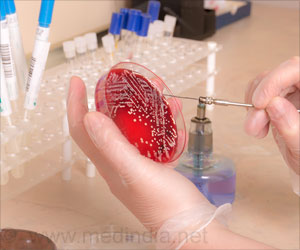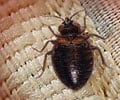
‘Rhabdopeptide and xenortide peptides produced by the photorhabdus and xenorhabdus bacteria were found to kill insect larva.’
Tweet it Now
The peptides, known as rhabdopeptide/xenortide peptides (RXPs), are produced exclusively by the bacterial genera Photorhabdus and Xenorhabdus. They live in symbiosis with nematodes, together with which they infect and kill insect larvae. Since many RXPs are toxic for eukaryotic cells (including insect cells) and are produced by many different strains of Xenorhabdus and Photorhabdus, they presumably play a very important role during infection.One single strain of bacteria can produce up to 40 RXP derivates. As the research group, which is led by Professor Helge B. Bode, Merck Endowed Professor of Molecular Biotechnology at Goethe University Frankfurt, reported in the latest issue of Nature Chemistry, it was surprising to see that only a maximum of four enzymes is required for their production. Bode compares them with classic chemical catalysts for the formation of polymer chains. His group has successfully solved the mechanisms responsible for the production of the unusually high diversity of RXPs.
Why do the bacteria produce a whole library of RXPs instead of single compounds? The researchers explain that the bacteria cannot control into which insect larvae they are delivered by their nematode host. However, in order to survive they must be able to kill any insect quickly and efficiently and direct the mixture of substances at perhaps completely different target sites in the insect cells at the same time. "Imagine shooting with a shotgun", explains Bode, "even if you're a poor marksman, there's a good chance that the spray of bullets will ensure that at least one hits the target!"
Future work will focus on detecting the exact mode of action of the RXPs and identifying, by means of structure-activity analysis, particularly potent derivates, which can then be produced biotechnologically or chemically and perhaps used as insecticides.
Advertisement













